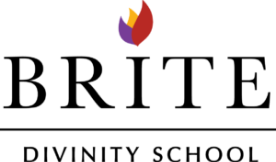History
Texas Christian University has had a concern for the education of ministers since its founding as AddRan College in 1873 by two brothers, Addison and Randolph Clark, both ministers of the Christian Church (Disciples of Christ). In the early years, it fulfilled this concern within the framework of the undergraduate B.A. program. Classes in Bible were offered to all students; those wishing to prepare for the ministry simply devoted a large part of their junior and senior years to concentration in Bible and religion. In the 1890s, the board of the University set in motion plans to establish a separately endowed and governed school to provide both undergraduate and graduate education for church leadership. By 1895, bylaws for a College of the Bible had been approved. However, it was not until 1907, that the first graduate theological degree, the Bachelor of Divinity, was awarded. The B.A. was regarded as a prerequisite of this new program, but the two curricula were scarcely distinguishable.
The College of the Bible received its name, separate charter of incorporation, and its first permanent building in 1914 as the result of a gift from Mr. and Mrs. L.C. Brite, cattle ranchers in Marfa, Texas. Though graduate enrollment was on the rise, Brite College continued to serve also as the undergraduate Department of Religion for AddRan College for another twenty-five years. In 1939, Brite initiated a standard three-year curriculum for the B.D. degree and became a member of the American Association of Theological Schools, giving up its undergraduate instruction in order to meet accreditation standards for graduate theological institutions. Two years later, this body recognized Brite as an accredited graduate theological seminary–the second Disciples seminary to receive this accreditation.
In 1963, the charter was renewed and the name was changed to Brite Divinity School. The name of the basic degree earned at Brite was changed from Bachelor of Divinity to Master of Divinity in 1967. Two years later, the Divinity School began to offer a program of study leading to the Doctor of Ministry degree. In 1988, the Master of Theological Studies and the Certificate of Theological Studies were introduced. In 1997, the American Association of Theological Schools granted Brite preliminary approval to offer the Doctor of Philosophy in two areas: Biblical Interpretation and Pastoral Theology and Pastoral Counseling (now known as Pastoral Theology: Transforming Persons, Communities, and Practices). In 1999, Brite introduced two new accredited degree programs, the Master of Theology and the Master of Arts in Christian Service. The three degree programs received ongoing approval from the Association of Theological Schools in 2006. Brite changed the name of the Master of Arts in Christian Service program in 2013 to the Master of Arts in Theology and Ministry to reflect more accurately the diversity of students’ academic and vocational goals.
In the school’s earliest years, administrative tasks were carried as an added responsibility by persons whose primary concern was teaching. Since Brite’s separate incorporation in 1914, the school has had a series of deans who have given major attention to administration with part-time teaching responsibilities. They are Colby D. Hall (1914-1947), D. Ray Lindley (1947-1950), Roy C. Snodgrass (1950-1955), Elmer D. Henson (1955-1971), William E. Tucker (1971-1976), M. Jack Suggs (1976-1989), Leo G. Perdue (1989-1999), Mark G. Toulouse (1999-2002), Interim Dean David J. Gouwens (2002-2005), Nancy J. Ramsay (2005-2012), Joretta Marshall (2012-2019), and Michael Miller (2019-2025), and Shonda Jones (present).
Since 1978, TCU and Brite have affirmed a series of formal agreements specifying the relationship between the two corporations. In 1999, the Brite Board of Trustees created the Office of President. Five persons have served in this office: Leo G. Perdue (1999-2002), Interim President D. Duane Cummins (2002-2003), D. Newell Williams (2003-2023), and Interim President Michael Cooper-White (2023-2024), and Stephen Cady (current).
In 1953, Brite moved into the south wing of the TCU Religion Center, which was completed that year. In 1998, the main building of the Divinity School was renamed to honor contributions made to the life and work of the Divinity School by Jo Ann and Wayne Moore. The central unit of this complex is the Robert Carr Chapel. In 2001, Leibrock Village, Brite’s student housing complex, opened for occupancy. The Divinity School completed a significant expansion of its classroom, office, and special event space with the construction of the Nell A. & W. Oliver Harrison Building, which opened in 2012.
Relationship with TCU
Although Brite Divinity School and Texas Christian University are independent institutions, they celebrate their rich historical relationship and enjoy a shared heritage, affiliation, traditions, and values with the Christian Church (Disciples of Christ). The two institutions operate under a Supporting Services Agreement that articulates the University’s contractual commitment to provide essential administrative support, operational and maintenance services, and the vision of both institutions to assure a continuing spirit of mutual involvement, cooperation, and support for the benefit of students, staff, and faculty.
Relationship with Christian Church (Disciples of Christ)
Brite Divinity School is related to the Christian Church (Disciples of Christ) in many official and unofficial ways. It reports biennially to the Plenary Assembly of the Christian Church (Disciples of Christ) in the Southwest. It is a member of the Christian Church (Disciples of Christ) Council on Theological Education of the Higher Education and Leadership Ministries. It receives financial support through the denomination's Church Finance Council. Many of the administrative officers, faculty, and students of Brite Divinity School serve the Christian Church (Disciples of Christ) at the local, regional, and general levels.


